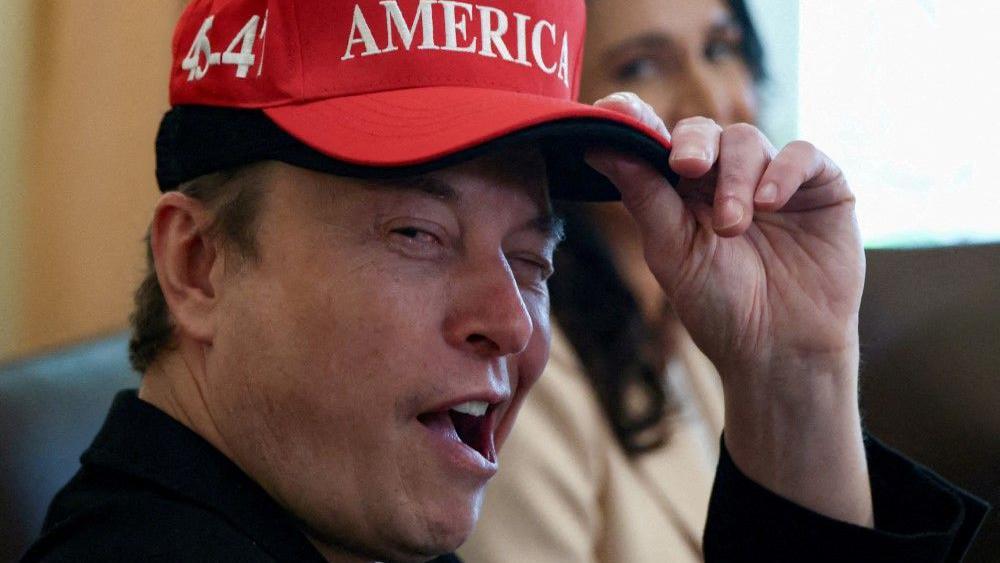Netanyahu faces increasing international criticism – the world
Israeli Prime Minister Benjamin Netanjahu faces increasing criticism of key allies. Although support still exists, statements from the United States and Europe indicate a change in tons and a more complex diplomatic situation.
German Chancellor Friedrich Merca stated harsh criticisms at the expense of Israeli strategy in Gaza. At the conference « Re: Publica » in Berlin on Monday (26. May) Merca stated that the suffering of civilians « could no longer justify » as part of the Israeli fight against Hamas.
He emphasized the special responsibility of Germany to Israel, but added: « When the boundaries are crossed and when Germany’s international humanitarian law, then Germany – and German Chancellor – must be advertised. » He also added that Israel must not act in a way that could take him even from the closest allies.
German Foreign Minister Johan Vadeful also described the humanitarian situation in Gaza as a « unbearable » and called for more efficient delivery of assistance. He admitted that it is difficult to harmonize the commitment of Germany Israel with respect for human dignity and international law.
In 2023. year, Germany has approved weapons exports in Israel worth 326.5m euros, including military equipment and war weapons – ten times more than 2022. in 2024. The export value amounted to 161.1 million euros.
Pressure from the United States
Criticisms from the United States, the nearest Israeli allies, also grow. In deviating from the previous support, President Donald Tramp told reporters in New Jersey: « We talk to Israel and we want to see if we can stop this whole situation as soon as possible. »
Although comments are mostly symbolic, they represent a change, says DW Professor of International Relations of Elena Aun (AUN) from the Catholic University in the Belgian Level (Uclouvain). « Donald Tramp is no longer so happy with Netanyhua as at the beginning of the term. There is definitely more tensions. » However, Aun emphasizes that American military and financial support for Israel continues to last, despite changing in rhetoric.
EU cautious, but there are sponsoring
The European Union also took steps towards reconsidering the relationship with Israel. Last week, foreign ministers announced revision of the EU-Israel Association Agreement, which regulates trade and political relations. The European Union Diplomacy Head of Kaja Kalas described the current level of humanitarian aid to Gaza as a « drop in the ocean ».
However, as Aun notes: « It’s a change in words, but not yet. The audit of the trade agreement is just the beginning. The EU still has to decide whether Israel violates Article 2 » In this article, trade agreements are conditioned by respect for human rights.
A total of 17 out of 27 EU member states supported audit. Germany, Hungary and the Czech Republic were among those who opposed, which made Israel thanked them publicly.
In an interview for DW, Ameli Ferej (Amélie Férey) in Paris, she emphasized that the impact of Europe on the conflict is limited: « The US is the main supplier of weapons and financial assistance, so their support – or its absence – represent the most significant difference. »
Order of the International Criminal Court
In addition to criticism of international leaders, the International Criminal Court issued an order to arrest Israeli Prime Minister Netanyahu and the Minister of Defense of Joava Galanta (Yoav Gallant). Symbolically, this move is significant, but its actual effect is limited, says Aun. « Germany, Hungary, France and Belgium have already indicated that they will not implement orders. This shows weakening international judicial mechanisms. »
Fairo does not agree. She emphasizes that arrest warrant limits freedom of movement of Netanyahu and his highest officials, who are now afraid to travel to countries that could arrest them.
This is the first time that the International Criminal Court issued an order to arrest the current Leader of the Democratic State with such charges during the conflict that still lasts. Netanyahu rejected the accusations, calling them « embarrassing » and insisted that Israel acts in self-defense.
Internal pressure
Meanwhile, the Israeli military campaign in Gaza continues. The Israeli army claims that it now controls about 40 percent of the territory and plans to take 75 percent in the next two months.
Although a limited delivery of assistance is allowed after the eleventh week-long blockade, the humanitarian situation remains difficult, organizations such as the International Red Cross say. According to the Ministry of Health in Gaza, about 54,000 Palestinians allegedly killed, and about 122,000 were injured.
The Israeli government faced criticism not only due to Gaza, but also politics on the west coast. The United Kingdom sanctioned extremists of the far right in Israel who promote illegal dissemination of settlements – which is a significant change in British policy.
Inside Israel, public dissatisfaction also grows. The demonstrations of the family of hostages and civil society groups continue. However, Elena Aun points out that the public in Israel remains a majority support: « Research shows that slightly more than 50 percent of respondents support the continuation of operations. »
Strategic goals under the question of questions
Prime Minister Netanyah insists that the goal of military operation is breaking up Hamas. But analysts like Aun remain skeptical: « The war lasts for two years. The new way of observation, especially in connection with Palestinian suffering. No strategic goal of Israel remains clearly realized. »
Ameli Feray has a different opinion: « If the goal was to destroy the military threat that Hamas represented for the Israeli army, then that goal was achieved. » However, it agrees that much harder will be to solve political issues and achieved long-term peace.
European credibility on the exam
For Ameli Feray, the credibility of Europe is tested in Gaza, because Brussels seems to apply double standards for Israel: « The European Union supports Ukraine, and hesitates that the same standard applies to Palestinians in Gaza. »
Welcomes the Audit Plan for the Agreement of the European Union and Israel as the first big step in the right direction, but emphasizes that Europe now needs a clear plan to reach a solution with two countries.
Both analysts agree that next week will be crucial. Netanyahu works defiantly, though his allies are wet. But critics are not unique. While lower symbolic moves, the question remains whether concrete international pressures will follow that could lead to real policy changes in the field.
Follow us on our Facebook and Instagram page, but also on X account. Subscribe to PDF List release today.








/s3/static.nrc.nl/images/gn4/data133016143-1373e5.jpg)